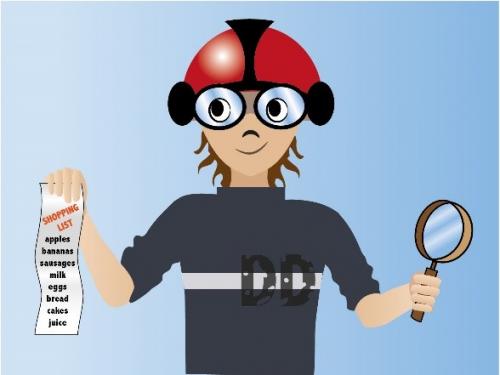Balanced diets are often talked about, but beyond eating five portions of fruit and vegetables a day, perhaps not everyone understands how diets can be balanced. Equally, sustainable diets are often referred to, and this phrase is becoming increasingly popular. However, what is a sustainable diet, and can a balanced diet also be a sustainable diet? The answers to these questions and more are discussed as part of the new Diet Detectives activity developed by SEFARI scientists.
The activity is based around learners creating three plates of food; choosing their favourite foods, creating a healthy balance plate as well as a plate of food to keep the planet healthy. Running Diet Detectives as a live event would feature a station for each plate including stickers and materials for drawing so that learners can add any appropriate foods they can think of for each plate.
The first outing of the Diet Detectives activity was to be at the Edinburgh Science Festival in the John Hope Gateway Centre at the Royal Botanic Garden Edinburgh this Spring. However, the current health crisis has currently prevented face to face interaction, so the activity has been adapted and is now an online resource anyone can access and deliver as a learning experience.
Currently, as a result of the COVID-19 situation, everyone is staying at home, staying safe and home-schooling. This presented an opportunity to provide a health and nutrition activity that could be used at home; Diet Detectives was modified so that simply having access to a printer still allowed it to be run. All the essential activity ingredients are included for the online resource; the plates for favourite foods, healthy foods and foods to keep the planet healthy. Instead of stickers for the plates, there are suggestions of relevant foods for each plate which learners can cut out and colour; and there is always the option to draw any foods that the learner can think of.
Two of the impact evaluations of Diet Detectives are to create displays of the plates of food to demonstrate engagement as well as to record the food journey sheets for feeding back and improving the activity. This will now be collected digitally from the online resource. Users and parents are encouraged to share their Diet Detective sheets on social media using #dietdetectives, as well as leaving feedback using the Slido webapp so that the impact and success of the activity can be gauged.
While Diet Detectives has very quickly been adjusted to run digitally to aid learners in the current situation, this has not compromised the quality of this activity. The resource is still underpinned by research provided by SEFARI expertise from across the Rowett Institute, James Hutton Institute and the Royal Botanic Garden Edinburgh. Each plate of food has required a set of key messages; from considerations of where our food comes from and why we eat, to the complex issues surrounding how the food we consume impacts the environment. This has culminated in an online resource that is easily accessible, but also reliably informs the next generation of scientists about the important aspects of eating a balanced diet, how this diet can affect the environment and how simple swaps to the food we eat could create a more sustainable diet.
Dr Julia Mitchell & Dr Russell Betney.
This new resource is part of a series of educational resources that SEFARI are making more readily accessible and free to access, learn more in an earlier blog available here.
